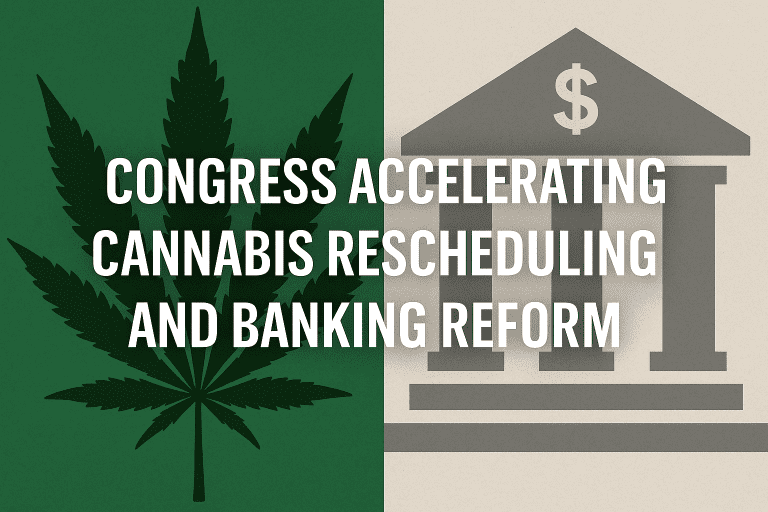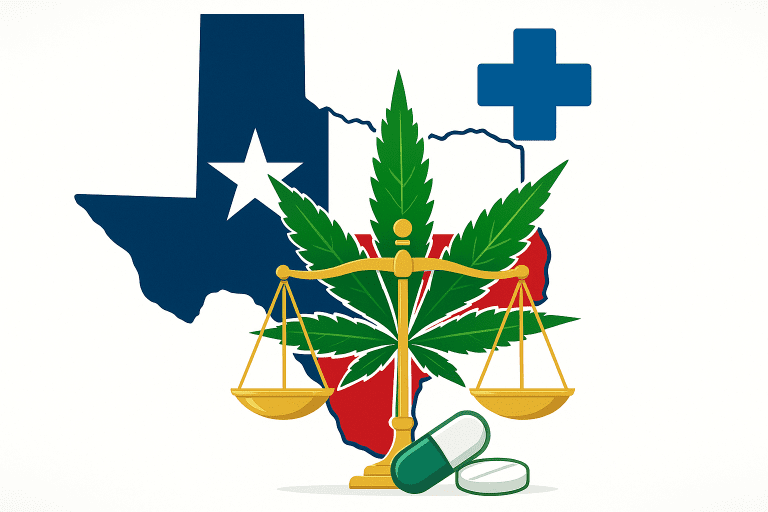Your Guide to Managing Your Maryland Medical Marijuana Card
As a Maryland resident, managing your medical marijuana card is an essential part of accessing the therapeutic benefits of cannabis. This guide will provide you with all the necessary information to ensure you can effectively manage your Maryland Medical Marijuana Card.
Can I Replace My Maryland Medical Marijuana Card?
Yes, you can replace your Maryland Medical Marijuana Card if it gets lost, stolen, or damaged. The Maryland Medical Cannabis Commission (MMCC) provides a straightforward process for card replacement. You can apply for a replacement card through the MMCC’s online system. Visit the MMCC website for more information.
Do I Need to Report a Lost or Stolen Maryland Medical Marijuana Card?
Yes, it is crucial to report a lost or stolen Maryland Medical Marijuana Card to the MMCC as soon as possible. This ensures your card is deactivated, preventing unauthorized use. You can report a lost or stolen card by contacting the MMCC directly.
How to Get a Replacement Medical Marijuana Card in Maryland
To get a replacement card, you need to log into your MMCC account and request a replacement. You will need to provide relevant information and pay the replacement fee. Once your request is processed, your new card will be mailed to you.
Cost of a Maryland Medical Marijuana Replacement Card
The cost of a replacement card in Maryland is $50. This fee is non-refundable and must be paid at the time of your request. You can pay this fee online through the MMCC’s secure payment system.
How Long to Get a Replacement Maryland Medical Marijuana Card?
Once your replacement request and payment are received, it typically takes 10-15 business days for your new card to arrive. However, processing times can vary, so it’s recommended to apply for a replacement as soon as you realize your card is missing.
Managing your Maryland Medical Marijuana Card is crucial to maintaining your access to medical cannabis. By understanding the replacement process, costs, and timelines, you can ensure you’re never without your card when you need it.
For more information, visit the Maryland Medical Cannabis Commission website.
Can I Replace My Maryland Medical Marijuana Card?
Yes, you can replace your Maryland Medical Marijuana Card if it gets lost, stolen, or damaged. The Maryland Medical Cannabis Commission (MMCC) has a process in place to help patients obtain a replacement card. It’s important to note that you should not attempt to use a damaged or expired card to purchase medical marijuana, as this could lead to penalties.
Reporting a Lost or Stolen Maryland Medical Marijuana Card
If your Maryland Medical Marijuana Card is lost or stolen, it’s crucial to report it to the MMCC as soon as possible. This can be done through the MMCC’s online system. Reporting a lost or stolen card ensures that your old card is deactivated and prevents unauthorized use.
How to Get a Replacement Medical Marijuana Card in Maryland
To get a replacement card, you’ll need to log into your MMCC account and request a replacement. You’ll be asked to provide some personal information and pay a replacement fee. Once your request is processed, your new card will be mailed to you.
Cost of a Maryland Medical Marijuana Replacement Card
The cost of a replacement card in Maryland is $50. This fee is non-refundable and must be paid at the time of the request. The MMCC accepts credit and debit cards for payment.
How Long to Get a Replacement Maryland Medical Marijuana Card?
Once your replacement request is processed, it typically takes 10-15 business days for your new card to arrive in the mail. It’s important to plan accordingly to ensure you don’t run out of your medication while waiting for your new card.
Remember, it’s your responsibility to keep your Maryland Medical Marijuana Card safe and secure. If you lose your card or it gets stolen, report it immediately and request a replacement to continue accessing your medication legally and safely.
Do I Need to Report a Lost or Stolen Maryland Medical Marijuana Card?
Yes, it is crucial to report a lost or stolen Maryland Medical Marijuana Card as soon as possible. This is not only to protect your identity and prevent potential misuse, but also to remain in compliance with Maryland state laws and regulations regarding medical marijuana use.
Why Report a Lost or Stolen Card?
Reporting a lost or stolen card is important for several reasons. Firstly, it helps to protect your identity. Your Maryland Medical Marijuana Card contains personal information that could be misused if it falls into the wrong hands. Secondly, it prevents unauthorized use of your card. If someone else uses your card to obtain medical marijuana, you could potentially be held responsible. Lastly, it ensures you remain in compliance with state laws. Failure to report a lost or stolen card could result in penalties, including the suspension or revocation of your card.
How to Report a Lost or Stolen Card
To report a lost or stolen Maryland Medical Marijuana Card, you should contact the Maryland Medical Cannabis Commission (MMCC) immediately. You can reach them by phone at (410) 487-8100 or by email at mdh.medicalcannabis@maryland.gov. You will need to provide your name, date of birth, and patient ID number. Once you have reported your card as lost or stolen, the MMCC will deactivate your old card and you can begin the process of obtaining a replacement.
Preventing Misuse
While waiting for your replacement card, it’s important to take steps to prevent misuse of your lost or stolen card. This includes monitoring your account for any unauthorized transactions and notifying law enforcement if you suspect your card is being used fraudulently. Remember, it’s your responsibility to protect your card and use it in accordance with Maryland state laws.
Conclusion
In conclusion, if your Maryland Medical Marijuana Card is lost or stolen, it’s important to report it to the MMCC as soon as possible. This will protect your identity, prevent unauthorized use of your card, and ensure you remain in compliance with state laws. Once you have reported your card, you can begin the process of obtaining a replacement.
For more information on managing your Maryland Medical Marijuana Card, replacing a lost or stolen card, and the costs and timeline associated with obtaining a replacement card, please refer to the other sections of this guide.
How to Get a Replacement Medical Marijuana Card in Maryland
Medical marijuana has been legal in Maryland since 2014, providing patients with a variety of conditions access to this alternative treatment. However, if you lose your Maryland Medical Marijuana Card, it’s essential to know how to get a replacement. This guide will walk you through the process.
Can I Replace My Maryland Medical Marijuana Card?
Yes, you can replace your Maryland Medical Marijuana Card if it is lost, stolen, or damaged. The Maryland Medical Cannabis Commission (MMCC) provides a straightforward process for obtaining a replacement card.
Do I Need to Report a Lost or Stolen Maryland Medical Marijuana Card?
While it’s not mandatory to report a lost or stolen card to the MMCC, it’s highly recommended. Reporting the loss can help protect your identity and prevent unauthorized use of your card. You can report the loss by contacting the MMCC directly.
How to Get a Replacement Medical Marijuana Card in Maryland
To get a replacement card, you need to log into your account on the MMCC website. Once logged in, you can request a replacement card. You’ll need to provide your patient ID number and pay the replacement fee.
Cost of a Maryland Medical Marijuana Replacement Card
The cost for a replacement card in Maryland is $50. This fee is non-refundable and must be paid at the time of the request. The MMCC accepts credit or debit cards for payment.
How Long to Get a Replacement Maryland Medical Marijuana Card?
Once you’ve submitted your request and paid the fee, it typically takes 10-15 business days for your replacement card to arrive. However, processing times can vary, so it’s best to request your replacement as soon as possible.
Remember, while waiting for your replacement card, you can still purchase medical marijuana using your government-issued ID and your patient ID number.
For more information, visit the MMCC patient information page.
Cost of a Maryland Medical Marijuana Replacement Card
Medical marijuana has been legal in Maryland since 2014, providing patients with a variety of conditions access to this alternative treatment. However, to legally purchase and use medical marijuana, patients must have a valid Maryland Medical Marijuana Card. If this card is lost, stolen, or damaged, it’s crucial to get a replacement. This article will discuss the cost associated with replacing a Maryland Medical Marijuana Card.
Replacement Card Fees
According to the Maryland Medical Cannabis Commission (MMCC), the cost to replace a lost, stolen, or damaged Maryland Medical Marijuana Card is $50. This fee is non-refundable and must be paid at the time of application for a replacement card.
Payment Methods
The MMCC accepts payment for replacement cards through their online system. Accepted forms of payment include credit and debit cards. Unfortunately, the MMCC does not accept insurance, cash, or checks for replacement card fees.
Additional Costs
While the replacement card itself costs $50, there may be additional costs associated with replacing your card. For example, if your card was stolen, you may need to file a police report, which could incur a fee. Additionally, if your card was lost or damaged due to a change in your medical condition, you may need to visit your healthcare provider for a new certification, which could also result in additional costs.
Cost Considerations
While the cost of replacing a Maryland Medical Marijuana Card may seem high, it’s important to remember that using medical marijuana without a valid card is illegal in Maryland. Therefore, the cost of not replacing a lost, stolen, or damaged card could be significantly higher, including potential legal fees and penalties.
In conclusion, while there is a cost associated with replacing a Maryland Medical Marijuana Card, it’s a necessary expense for patients who rely on medical marijuana for treatment. Always keep your card in a safe place to avoid the need for replacement, but if it does happen, know that the process is straightforward and relatively quick.
References
How Long to Get a Replacement Maryland Medical Marijuana Card?
Replacing a lost, stolen, or damaged Maryland Medical Marijuana Card (MMJ) is a straightforward process, but it does require some time. The length of time it takes to receive a replacement card can vary depending on several factors, including the processing time of the Maryland Medical Cannabis Commission (MMCC) and the delivery time of the postal service.
Processing Time by the MMCC
The MMCC is responsible for processing all applications for replacement MMJ cards in Maryland. According to the MMCC’s FAQ page, the processing time for a replacement card can take up to 45 days. This time frame includes the time it takes for the MMCC to review the application, verify the information, and issue the replacement card.
Delivery Time by the Postal Service
Once the MMCC has processed the replacement card, it is mailed to the patient’s address on file. The delivery time can vary depending on the postal service, but it typically takes between 7 to 10 business days. Therefore, patients should expect to receive their replacement MMJ card within 52 to 55 days from the date of application.
Expedited Processing
Currently, the MMCC does not offer expedited processing for replacement MMJ cards. All applications are processed in the order they are received. Therefore, it is crucial for patients to apply for a replacement card as soon as they realize their card is lost, stolen, or damaged to avoid any interruption in their ability to purchase medical cannabis.
Conclusion
In conclusion, the process of getting a replacement Maryland Medical Marijuana Card can take up to 55 days. This includes the processing time by the MMCC and the delivery time by the postal service. While this may seem like a long time, it is a necessary process to ensure the integrity of the MMJ program and the safety of its patients. Therefore, patients are encouraged to keep their card in a safe place and to apply for a replacement card as soon as possible if it is lost, stolen, or damaged.




















